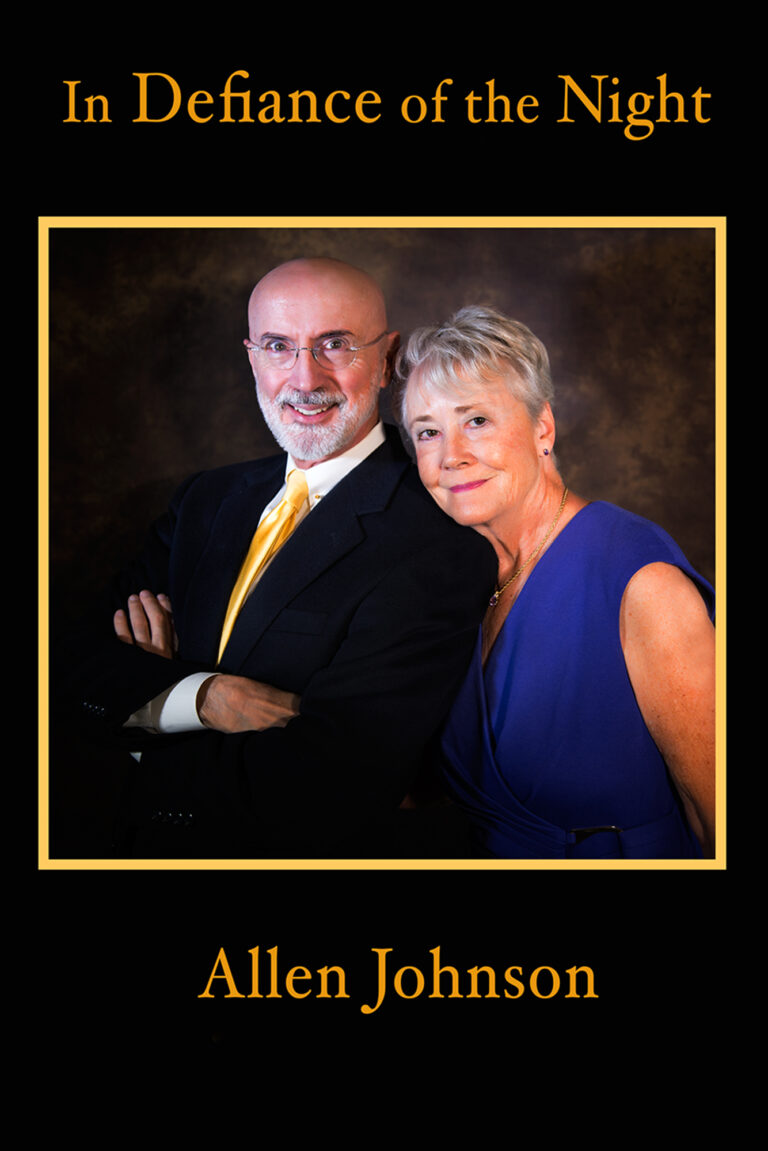My mother was raised in an orphanage in Brooklyn, New York during the great depression. She tells me that when she was a schoolgirl, she always walked with her head down, eyes darting, hoping to find a few pennies, a nickel, or a dime. And when she did, it was an occasion for celebration (in the early 1930’s ten cents could get you into the movies).
Years later, when I was a small boy, my mother had a habit of doing something that puzzled me. After making a purchase, she would uncurl her hand and let the change from her recent transaction tumble to the pavement. I was not, under any circumstances, allowed to retrieve the coins.
“But, why?” I pleaded.
“Because those coins belong to a poor little girl,” she would say. “It will make her day.”
I didn’t know it then, but my mother was teaching me the whole-heart approach to living. What is whole-heart living? To answer that we must begin by revisiting an introductory lesson on the anatomy of the human heart. (See Figure 1.) The heart has four chambers. The top two chambers are called the left and right auricles. The bottom two chambers are called the left and right ventricle. The two auricle chambers draw the blood from the veins. When the blood pressure builds up in the auricles, the tricuspid and mitral values open and the blood pours into the lower ventricle chambers. When the ventricle chambers fill, the pulmonary and aortic values open, the heart contracts, and the blood is pushed through the arteries to the rest of the body. This two-step process—diastole and Systole—occurs every second of our lives. (I prefer the less technical terms for the process: lub and dub, as in lub-dub, lub-dub, lub-dub.)
I would like to use this anatomical wonder as a metaphor for career development. It begins with a powerful definition of love as offered by M. Scott Peck, author of The Road Less Traveled. Peck defines love as the will to extend oneself for the purpose of nurturing intellectual or spiritual growth for oneself and others. I believe that simple sentence captures the essence of a successful career—a process that resembles the beating of the human heart.
Imagine that the heart did not beat every second, but only once every forty years—about the average span of a career. In the first half of one’s career, the heart relaxes and the blood is drawn into the two auricle chambers. I think of the task of the auricle chambers as representative of the development of the intellectual and spiritual self. (See Figure 2.) Those chambers must first be served, before serving others—“lub.” As Bob Buford has suggested in his book, Half Time, this is the period when young workers seek to make a name for themselves—to be successful.
In the second half of one’s career (the onset of which varies depending upon the maturity of the individual), the ventricle chambers fill up, the heart contracts, and blood is pushed out of the heart and into the body. I think of the responsibility of the ventricle chambers as symbolic of intellectual and spiritual service to others—“dub.” Buford rightly calls this second stage of career development a shift from success to significance.
Unfortunately, for many that transition—from receiving blood to giving blood, from success to significance—is arrested. These people get stuck in the first half of their lives, frantically climbing the latter of success, or stuck in half time, unwilling or incapable of figuring out a game plan for the second half. When the second half of the game is not played, the heart has fulfilled only one half of its mission; it is tantamount to having a heart attack.
The first half: the pursuit of success
There are two chambers of the heart dedicated to the individual: the intellectual (to learn) and the spiritual (to be free). Both chambers must function robustly to ensure personal success.
Serving the intellect of self: to learn. The most successful young employees are learners. They have a hardy curiosity for all things. They want to understand the world they live in, particularly their own discipline. They are constantly seeking ways to expand the depth and breadth of their knowledge.
But frankly, these young learners are in the minority. The figures are dismal. On the average, Americans read less than one book a year. In fact, fifty-eight percent of all high school graduates will never read another non-fiction book cover to cover. This trend is deeply disturbing.
One day, I spoke to an animated seventeen-year-old boy.
“What are you passionate about?” I asked (one of my favorite questions).
“Horses,” he said. “I love everything about horses.”
“Wow,” I said, “if that’s the case, you’ve got to read The Man Who Listens to Horses by Monty Roberts. It’s terrific.”
The young man smiled sheepishly. “Oh, I don’t read,” he said flatly.
“What do you mean?” I asked.
“Oh, I like books with lots of pictures. You know, comic books—stuff like that.”
It was not that the young man couldn’t read (“He’s quite bright,” his father told me later), but that he wouldn’t read. I thought how sad. So, this is as good as it gets? I couldn’t help but wonder if the youngster would someday become an old man stuck with the intelligence of a teenager. That’s a scary thought. (Mind you, I recognize that reading is not the only way to learn. But it is a great resource that allows us to get into the minds of the greatest thinkers. It is a shame to waste such a powerful body of knowledge and wisdom.)
Serving the spirit of self: to be free. In the first half of their careers, employees must learn to be free, i.e., independent. The only way to do that is to be aligned to principles. Those who are truly independent are able to make decisions based on their highest ideals, despite the influences of the world. Ralph Waldo Emerson put it this way:
In the world, it is easy to live after the world’s opinions. In solitude, it is easy to live after one’s own. But the great one is he who in the midst of a crowd can keep with a perfect sweetness the independence of solitude.
The young employees who are mature enough to understand the true meaning of independence do not live lives of dependency. They do not engage in game playing, taking on the role of victim, persecutor, or rescuer. They do not whine about their misfortune; they do not look for ways to undermine others; they do not wait helplessly with bated breath to be rescued from their misery. They are their own champions (which, as a side benefit, attracts a cadre of external champions).
Here’s an example to make the point. One day (somewhere in mid career) a manager called me into his office.
“What’s the status of the X9000 project?” he barked.
“I don’t know,” I said.
The manager’s face turned crimson. “Well, !@#$%^&* don’t you think you SHOULD know!”
Obviously, the manager was intent on playing the role of a persecutor, and, more than likely, wanted me to play the role of a victim. It is a familiar game of dependency—not a game that promotes freedom. I understood that and decided not to play the game.
“Frankly,” I said, “I have not been involved in the project. Kirk has been heading that up. However, if you would like me to get involved, I’d be glad to.” The next sentence I had to say very carefully. If the tone was not right, it could sound like a persecutor and the dependency game would continue. “By the way,” I said, forcing my voice to be as calm as possible, “it’s very important to me that we speak to each other adult to adult. I don’t know about you, but I wasn’t totally satisfied with the quality of our exchange. What do you think?”
Thank goodness, the manager had the maturity to reevaluate his behavior. “Allen, you’re right,” he said. “Let’s start this conversation over.”
Freedom is not arrogance. Arrogance is a manifestation of the ego—a compulsive claim to be right—and, as such, is just another form of dependency. Freedom occurs when one defends (with kindness) truth in all things; anything less is dependency.
The second half: the pursuit of significance
For mature employees, the second half of their career is truly the glory years. All the oxygenated blood that they drew into their heart is now pumped into the body. It is time to give back—serving the intellect and spirit of others through teaching and the act of leaving a legacy. It is the gift of love.
Serving the intellect of others: to teach. The truly gifted teachers take their time in establishing the playing field. They understand that two things must happen before they teach.
First, they must model integrity, i.e., they must demonstrate that their behavior matches their principles. The secretary to Mahatma Gandhi was once asked how the legendary leader could make a two-hour speech without a single note. His response was telling. “You do not understand. Gandhi is all one: What he feels is what he thinks; what he thinks is what he says; what he says is what he does.” The great teachers are like that; they are whole. As Gandhi himself once said, “One cannot do right in one department of life whilst he is occupied in doing wrong in any other department. Life is one indivisible whole.”
Second, teachers listen. They listen with a kind of intensity that is nearly extinct. They listen patiently and wholeheartedly. They listen for both content and emotion—and they make certain that their understanding matches the intention of the speaker.
Then, and only then, do they engage in coaching, mentoring, advising, or teaching. Why? Because only then is the “student” ready to be logical. In fact, these teachers are quick to retreat to the listening mode, the moment they see that the “student” has discarded logic and returned to a more emotional state of being.
Once, during a team-building session, I asked the participants if they felt that they were suited for the positions they held. One of the members caught me off guard.
“I’m too stupid to do my job,” she said with a trembling voice.
Wanting to bolster her self-esteem, I said, “Do you really expect me to believe that?”
At that point, the woman picked up her things and left the room. I followed her to the parking lot and tried to persuade her to return. She would not budge.
“How can I?” she said. “I can’t trust you. I told you how I felt and you pounced on me. It was like calling me a liar.”
She was right. Although my intention was noble, my method was deadly. I was too anxious to teach and not patient enough to listen. Truly elegant teachers spend ninety percent of their time listening, ten percent of their time teaching. There is a reason for that: All the time the teacher is listening, the “student” is in the process of working out his or her own problems—not a bad use of time.
Serving the spirit of others: to leave a legacy. The most evolved leaders of the world—those who are firmly standing in the second half of their lives—are intent on living lives of significance. As leaders of substance, they acknowledge that they have both the honor and the responsibility to be a positive influence. Moreover, they know that such a calling is best realized through service—which, ultimately, is nothing less than an expression of love.
I like the way Mother Teresa expressed it. These words were inscribed on his business card:
The fruit of love is service.
The fruit of service is peace.
People that live in the second half are genuinely at peace. There is a serenity about them that evolves from the satisfaction of doing the right thing.
They are the givers; they hold nothing back. They are convinced that time has run out for pettiness: one-upsmanship, backbiting, turf building, and political infighting. They know that there is only time to make a contribution.
When the calling to contribute is ignored, peace becomes maddeningly illusive. I have a friend (I’ll call Andy) who, financially speaking, was very successful early in life. He made a small fortune by the time he was forty. At forty-five, he decided to retire and dedicate his life to world travel. When I met him for the first time, he was fifty-five years old, suffering from anxiety attacks, damaged relationships, and intense boredom.
“What should I do?” he asked me one afternoon. “I’m bored out of my mind.”
I responded to him honestly. “Andy, you’ll never be happy until you discover a way to make a contribution.”
“How do I do that?”
“Well, think about the things you are passionate about and then share that passion with others. For example, you’re well traveled, right?
“Right,” he echoed suspiciously.
“So, how about starting a travel interest group?”
“Nah, I would never do that.”
“Well, you love to read. How about starting a reading group?”
“No, I don’t think so.”
“Okay,” I said, never one to give up without a fight, “you’re passionate about antiques. How about teaching a community class on the subject?”
“What, and have people learn what I’ve got, so they can rob me blind?”
I gave up. To this day, Andy remains isolated, self-absorbed, and, ultimately, disillusioned. Those feelings will not change until he enters, if ever, the second half of his life.
Leaders who have embraced a life of service have nothing to prove other than living by principles. They never seek to prove that they are right and that others are wrong; such behavior is completely alien to them. Why? Because they are driven by spirit and not by ego. Wayne Dyer offers this test in his book, Your Sacred Heart: “If you have a choice between being right or being kind, choose being kind.” That’s spirit.
Here is an example. Imagine that you are entering a department store. Just as you are about to step through the door, you notice a woman who appears to be in a hurry. Out of common courtesy, you decide to hold the door open for the harried shopper. Then you wait for the woman to say thank you. But the shopper is silent, the tail of her summer dress flapping as she accelerates down the isle. What do you say? If you call out to the woman, “You’re welcome,” you are operating from the ego. It is saying, “Let me take a moment out of my day to make you a better person. You are not operating by my code of standards, and you need to be fixed.” (Incidentally, in all the times I’ve tried to renovate others in such a manner, not one has come back to me to shake my hand and say, “Thank you so much for pointing out my personal faults.” Not one.)
Again, people who are living securely in the second half of their lives (lives of significance) have nothing to prove. They do what is right—helping others to be more intellectually and spiritually evolved—and let the universe take care of the rest.
The mature leader and the golden rule
The mature leaders—the people who have feed their intellect and spirit, and the intellect and spirit of others—are, when you think about it, living in accordance with the golden rule.
The golden rule is a universal guideline, one that is observed in all major religions around the globe. I particularly like the version from the Talmud:
What is hateful to you, do not do to your fellowman. This is the entire law; all the rest is commentary. Shabbat 31a.
The wisdom of this concept was demonstrated when my mother surrendered a few coins for a jubilant child to discover. My mother’s reasoning was simple and just: “If it was good for me, it will be good for others.” That is the golden rule.
The functioning of the heart is literally and metaphorically life sustaining. It nourishes our lives and the lives of all those we encounter. Employing all four chambers of the heart is the true measure of career success. It is also the essence of love. In the end, you may believe that your vocation is to be an entry-level employee or a president of industry. You are mistaken. Your vocation is to love; all the rest is commentary.


